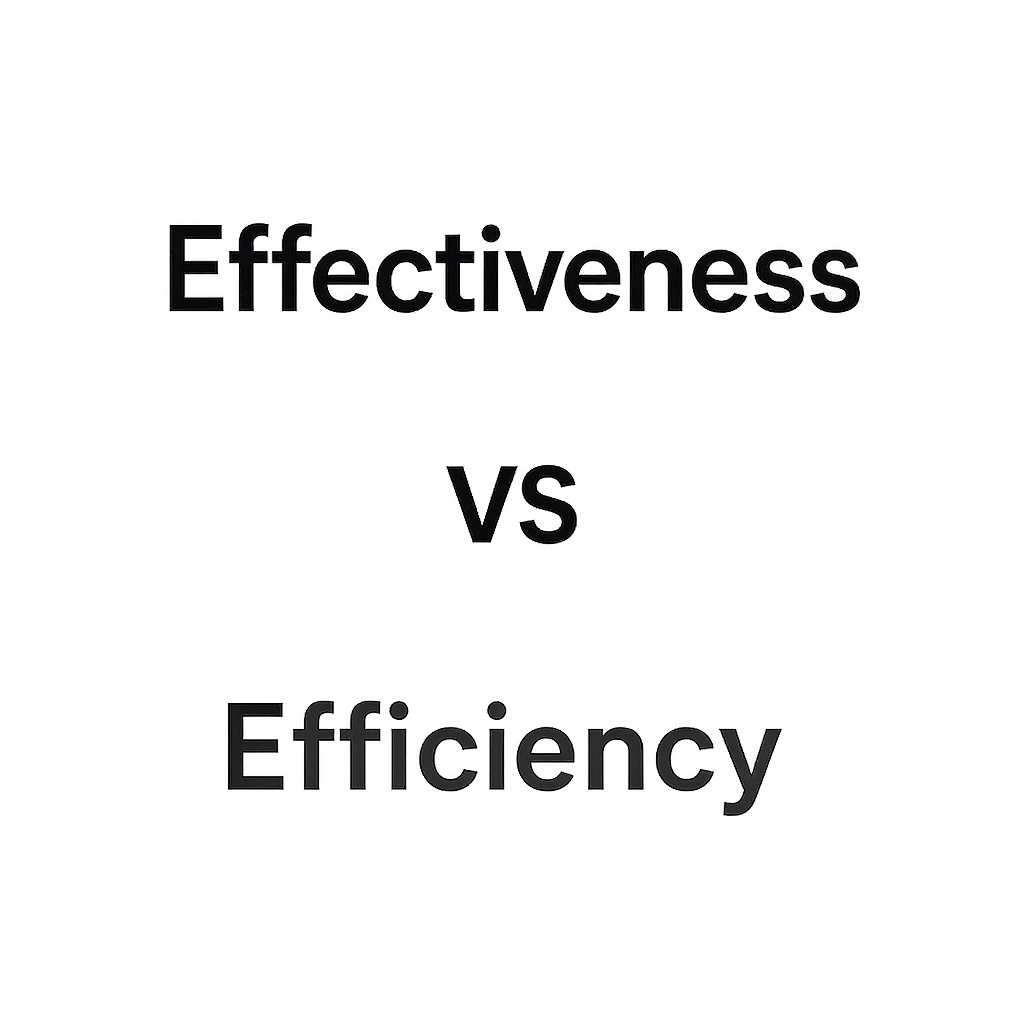"Effectiveness" Vs "Efficiency" - What's the Difference

English has many word pairs that feel almost the same but carry different meanings. Two of the most common are “effectiveness” and “efficiency.”
Both describe how well something works, but they focus on different aspects of success. Midoo AI will break them down today with clear examples and memory tips, so you’ll never confuse them again.
What Does “Effectiveness” Mean?
Effectiveness is about achieving the goal. If something is effective, it produces the desired result — whether or not it uses a lot of resources or time.
In other words: Did it work? Did it reach the target?
Examples of “Effectiveness”:
- The new medicine proved its effectiveness by curing patients quickly.
- The campaign’s effectiveness was clear — sales doubled.
- Teachers measure the effectiveness of lessons by student results.
- The effectiveness of a plan depends on whether it solves the problem.
- His speech showed little effectiveness because people weren’t convinced.
👉 Key idea: Effectiveness = doing the right things.
What Does “Efficiency” Mean?
Efficiency is about achieving the goal with the least waste of time, effort, or resources.
In other words: How well was it done? Was it fast, cheap, and smooth?
Examples of “Efficiency”:
- Solar panels improve energy efficiency by reducing waste.
- The team worked with great efficiency and finished ahead of schedule.
- Modern cars are designed for fuel efficiency.
- A new app increased the company’s efficiency by automating tasks.
- Typing on a computer has more efficiency than writing by hand.
👉 Key idea: Efficiency = doing things the right way.
Quick Comparison
- Effectiveness → Focuses on the result (Did you achieve the goal?).
- Efficiency → Focuses on the process (Did you use minimal time/energy to get there?).
Comparison Table
| Word | Focus | Question It Answers | Example |
|---|---|---|---|
| Effectiveness | Success in reaching the goal | Did it work? | The vaccine proved its effectiveness. |
| Efficiency | Saving resources in reaching the goal | How well was it done? | The workers showed high efficiency. |
Everyday Example
Imagine you’re studying for an exam:
- If you studied the right chapters and passed → that’s effectiveness.
- If you studied quickly, with focus, and without wasting time → that’s efficiency.
For real success, you want both: be effective and efficient.
Memory Tips
- Effectiveness = Effect. Think of the end result (the effect).
- Efficiency = Energy. Think of saving energy, time, and resources.
- Or: Effectiveness is about doing the right things; efficiency is about doing things right.
Common Mistakes
❌ This car shows great effectiveness in fuel use. ✔️ This car shows great efficiency in fuel use.
❌ The teacher praised the efficiency of the new teaching method because students learned more. ✔️ The teacher praised the effectiveness of the new teaching method because students learned more.
FAQs
Can something be effective but not efficient?
Yes. A method might work (effective) but waste a lot of time or money (not efficient).
Can something be efficient but not effective?
Yes. You might work quickly (efficient) but focus on the wrong task (not effective).
Which word is more common in business?
Both. Companies want effectiveness (goals achieved) and efficiency (cost savings).
Is “efficiency” always about speed?
Not only speed — it’s about reducing waste, which can mean time, money, or effort.
How can I remember them quickly?
Think: Effectiveness = result. Efficiency = resources.
Final Thoughts
The difference is simple but powerful:
- Effectiveness = Did you achieve the goal?
- Efficiency = Did you achieve it with minimal waste?
In life, work, and study, the best approach is to aim for both. Midoo AI’s advice? Don’t just get things done — get them done well and wisely.